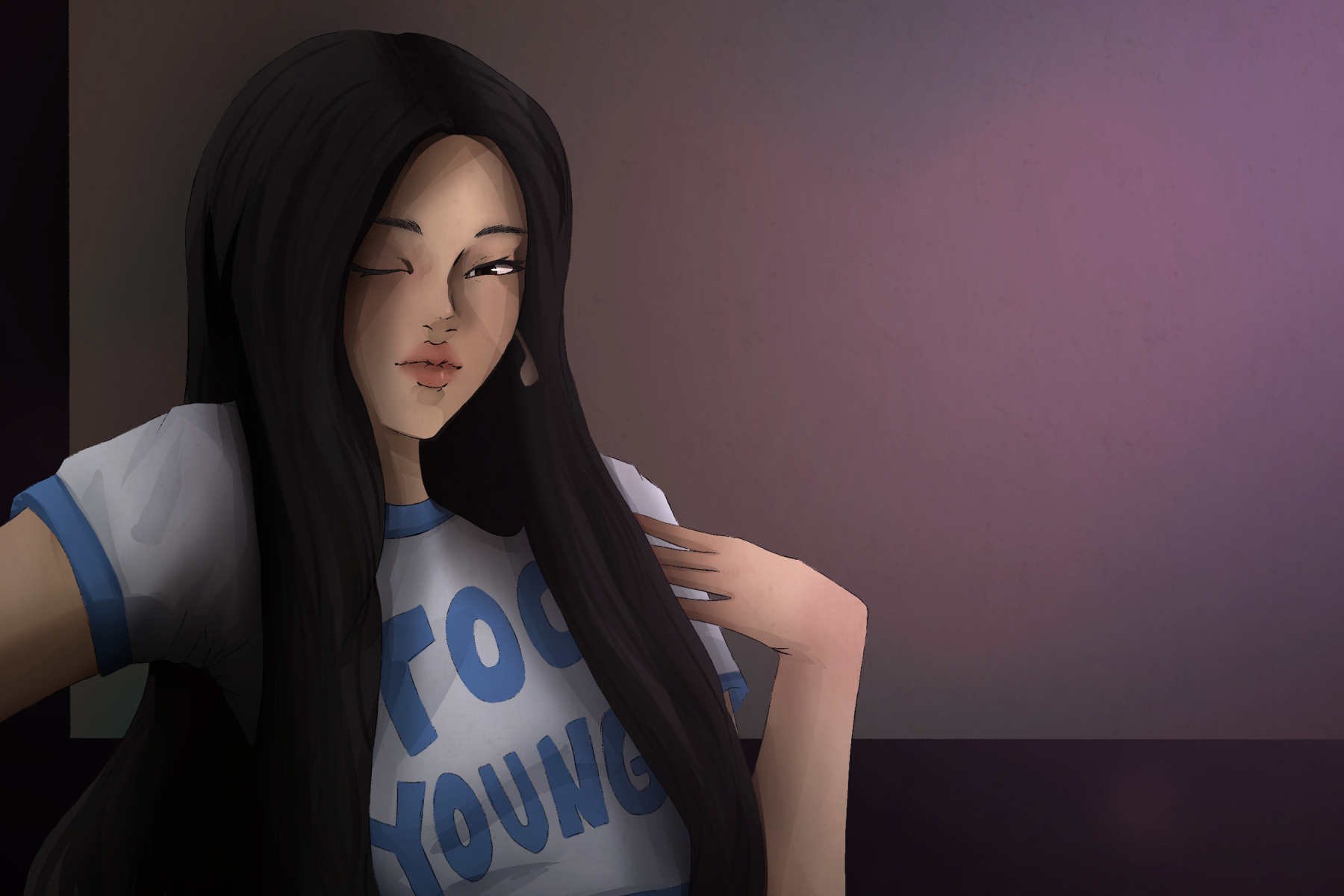Cheery and energetic vocals, captivating hip hop dance moves and a classic, effortless and youthful style. Such praise describes NewJeans, the latest rookie girl group under ADOR, a subsidiary under the HYPE corporation. Although you may not initially recognize the corporation’s name, it manages some of K-pop’s biggest acts such as BTS, Seventeen, TXT, ENHYPEN, Le Sserafim and Zico.
When NewJeans’ single “Attention” debuted, the song reached over 1.3 million views in less than 24 hours. Following this success, the group released “Hype Boy,” “Hurt” and “Cookie” shortly thereafter. Within three days, NewJeans’ debut album surpassed 440,000 pre-orders. Their “Hype Boy” dance choreography became a viral trend on Tik Tok, with established K-pop idols taking part. Similarly, their newest releases “Ditto” and “OMG” instantly became viral Tik Tok dance trends. NewJeans are clearly riding high on their wave of success, capturing the eyes of Gen Z and the K-pop industry alike.
Their immediate accomplishments led them to be awarded Best New Artist at both the prestigious Asia Artist Awards and Melon Music Awards. Not only have they been breaking music records, but NewJeans has also broken cultural records in K-pop history: Member Hanni is the first ever Vietnamese K-pop idol. Luxury brands such as Gucci, Louis Vuitton and Burberry have appointed members as brand ambassadors. Recently, NewJeans became a global brand ambassador for Levi’s.
Despite their popularity, however, the group has also sparked controversy within the K-pop industry. Noticeably, the group has an average age of 16.6, with their youngest member, Hyein, being 14 and thair oldest member, Minji, being 18 years old. This was a controversial move by ADOR, as these young members were seemingly thrown into the notoriously harsh pits of the Korean entertainment industry. Many K-pop idols go through a disreputably difficult ‘trainee period,’ during which they practice their singing and dancing for grueling hours. Moreover, Korean beauty standards praise thinness; thus, companies impose strict diet restrictions on the growing trainees. Working in the industry at such a young age also strips them of a “normal” childhood. As public figures, they will be scrutinized and idolized for the rest of their lives, unable to live like ordinary people.
Debuting younger idols in the K-pop industry is not a new phenomenon. Shinee’s Taemin, NCT Dream’s Jisung and most recently, IVE’s Leeseo debuted at age 14. The reason for debuting idols at a young age is the entertainment industry’s intrinsic ageism. Korea has strict beauty standards and a thriving skincare industry that leads to wrinkles and other normal signs of aging to be criticized and shamed. Trainee periods also last for years, with the cut-off age for debuting an idol being around 18 to 19 years old. Consequently, aspiring idols must train in their youth to meet this cut-off. The K-pop industry also has a phenomenon called the ‘seven-year curse;’ groups are likely to disband due to their contracts expiring after seven years. More often than not, K-pop groups begin to lose popularity after the seven-year mark because of their age and other younger, newer groups taking the spotlight. Since NewJeans’ members are so young, they are able to stay relevant and relatable for a longer period of time.
Despite its controversy, NewJeans’ youth is also a selling point. NewJeans members are relatable to K-pop fans, who are predominantly young teens. A prominent critique of the K-pop industry is its fostering of parasocial relationships. Groups create fandom names, hold one-on-one calls with fans and often livestream, cultivating a persona of relatability and the idea that fans and idols are friends. The relatability of NewJeans can foster parasocial relationships, which is great from a marketing standpoint, yet toxic for fans.
Evidently, NewJeans alludes to combating these parasocial relationships in their work. In their music video for “Ditto (side A),” Heesoo, a high school girl, is seemingly having fun and recording NewJeans with her camera. At the end of the video, a plot twist reveals that Heesoo is actually all alone, recording no one. YouTuber Hyeautiful theorizes that while NewJeans wants to incite joy in their fans’ lives, they also condemn having an unhealthy obsession with them, especially if it drives fans to ignore reality.
Furthermore, their youth could promote dangerous ideals for young listeners. The young ages of the members could also be a source of comparison for K-pop fans. The NewJeans members’ talent and success could enable fans to compare themselves to the idols and consequently form negative self-perceptions. NewJeans’ song “Cookie” was criticized for its seemingly suggestive lyrics, especially since NewJeans has underage members. ADOR responded by saying that the “underlying message of the song is the value of NewJeans’ attempt to make new and original music” and that they “consulted with English professors, professional interpreters, translators, and native speakers” who did not immediately find innuendos in the song. This controversy proves that debuting underage idols will always leave their actions up to possible sexualization. To truly protect members, entertainment companies should not debut minors at all.
What’s the solution to minors entering the problematic K-pop industry that thrives off of debuting young adolescents? Ensuring that aspiring idols have a balance between education and K-pop training is important. Having an education means they have a choice to leave the industry and can have something to fall back on. Furthermore, they should also learn about the history of past idols with negative experiences to truly understand what they are signing up for. Prioritizing wellness and allowing for accessible mental health care is also fundamental in helping these performers endure the pressures of the K-pop industry. It is vital not to restrict their dietary habits and to allow them rest, as they are growing teenagers who deserve to enjoy their youth. Furthermore, refraining from debuting idols under the age of 18 would ensure that the stars enter the K-pop industry with a solid understanding of the responsibilities and ramifications of fame.
YG Entertainment, internationally popular for managing groups Blackpink and Big Bang, is already inciting controversy for possibly debuting a thirteen-year old member. However, the K-pop industry could be recognizing its flaws, as K-pop group M.M.D. consists of famous female idols and actresses who returned to entertainment after taking time off for motherhood. Girl groups Twice, Red Velvet and Mamamoo have also broken the seven-year curse, proving that female talent in the industry does not expire with age.

















